Hay fever
Sprays and tablets for allergic rhinitis.
Secure delivery
UK clinicians
Hay fever is an allergic reaction to substances like pollen and dust that results in cold-like symptoms such as a runny nose, congestion, sneezing, and itchy and watery eyes.
Order hay fever treatment online to get your medication delivered quickly and on a schedule that suits you.
Hay fever is the common name given to allergic rhinitis, a condition that results in cold-like symptoms such as itchy and watery eyes, sneezing, and nasal disturbances from blockages to itchiness. It normally only happens during certain times of the year.
The incidence of hay fever is at its peak when there’s a high concentration of pollen in the air, usually between late March and September. But it can also be triggered by dust mites (which can cause symptoms all year round).
There’s no cure for hay fever, but there are a few different options you can try, as well as ways to try and avoid it. For example, if your hay fever is caused by dust mites, you can make a few changes in your living space to try and reduce the severity of your symptoms Avoiding evaporative coolers, investing in a dehumidifier, and switching any upholstered furniture with plastic, wood, vinyl, or leather are things which can help.
Anyone can get hay fever, but some people are more likely to experience it than others. But the reason for this is yet to be fully discovered; clinicians have studied hay fever for a long time, but they still don’t fully understand the reasons why some people are more prone to it.
Studies have shown that exposure to certain irritants during childhood, namely second-hand cigarette smoke, can play a role. Genetics is also thought to be involved in the development of hay fever. If you have a family history of allergies, of any kind, you might be more likely to develop hay fever.
These factors don’t guarantee that you will have hay fever at any point in your life, and hay fever isn’t limited to people in these risk groups. You might not have a family history of hay fever and you might not have been around cigarette smoke at all as a child, but you can still develop the condition.
Hay fever is very common. Its prevalence, based on diagnosis, is around 15%, but it’s thought to be as high as 30% based on people who show symptoms but don’t seek a diagnosis.
Hay fever is also the most common paediatric condition, but children are more prone to get seasonal hay fever, whilst adults are more prone to develop chronic hay fever.

How we source info.
When we present you with stats, data, opinion or a consensus, we’ll tell you where this came from. And we’ll only present data as clinically reliable if it’s come from a reputable source, such as a state or government-funded health body, a peer-reviewed medical journal, or a recognised analytics or data body. Read more in our editorial policy.
Hay fever is a type of allergy, and it’s caused by a response from your immune system to what it perceives as a threat, even though it’s not. In the case of hay fever, your immune system thinks that pollen and/or dust mites are a threat so it responds like it would to a virus.
Symptoms of hay fever occur when your body produces histamine in order to protect your body against this perceived threat. The role of treatment with antihistamines is to curb this process and reduce or get rid of your symptoms.
Hay fever can also co-occur with asthma, and it’s a risk factor for asthma too, so there are links between the two. Your airways may experience continuous inflammation and this can lead to chronic hay fever.
The symptoms of hay fever can vary greatly in severity, but most people will experience the same set of symptoms. These include, but are not limited to:
Less common symptoms include:
If you’re struggling with particularly strong symptoms of hay fever, you should seek medical assistance. Our clinicians will be able to advise you on the best course of treatment for your individual health needs and monitor your progress to make sure you don’t need a different medication or dosage.
Hay fever can lead to both long-term and short-term complications such as sleep disturbances, constant fatigue, a decrease in cognitive abilities and learning abilities, and an overall lower quality of life.
Hay fever can also contribute towards or even directly cause other medical conditions such as acute or chronic sinusitis, hearing impairment, ear infections, and sleep apnoea.
Hay fever can also put you at a higher risk of developing asthma. People who develop both conditions can treat them together with a leukotriene inhibitor such as Montelukast. If you’re struggling with hay fever in conjunction with asthma symptoms, you should contact our clinicians so they can advise you on the best course of treatment.

How we source info.
When we present you with stats, data, opinion or a consensus, we’ll tell you where this came from. And we’ll only present data as clinically reliable if it’s come from a reputable source, such as a state or government-funded health body, a peer-reviewed medical journal, or a recognised analytics or data body. Read more in our editorial policy.
The first step to take when treating hay fever is making sure that you’ve gotten rid of any triggers in the house and have done your best to minimise your exposure to pollen. If these measures aren’t enough, there are three different treatment options: antihistamines, corticosteroids, and immunotherapy.
Antihistamines work by protecting your body from histamines, the substance your body releases in response to a perceived threat, which in the case of hay fever is pollen or dust mites. Blocking the effect of histamines will help greatly reduce the symptoms of hay fever. You can get antihistamines in almost any form, from drops, lotions and sprays, to tablets.
Corticosteroids stop histamine from being produced in the first place so it works better to prevent hay fever. Some treatments combine antihistamines and corticosteroids to provide the best range of benefits possible.
If you’ve tried both of these treatments and nothing has worked, you might need to get immunotherapy. Immunotherapy is often known as a desensitisation treatment and it’s done by giving you increased dosages for allergens such as pollen or dust mites. It’s either administered by injection or orally. The aim is to reprogram your immune system into accepting these allergens as nonaggressive, effectively preventing an allergic reaction from happening in the first place.
There isn’t a specific treatment that’s best for everyone. Each person responds to medications differently. Some people prefer to take antihistamines whilst others prefer steroid treatments. Or you may prefer drops or tablets. So there are a number of factors to consider in terms of the right treatment options for you.
Some people may benefit from allergen immunotherapy (AIT), which exposes you to larger and larger amounts of an allergen to build your tolerance and reduce your symptoms. This therapy may help with hay fever symptoms. AIT should only be done with the supervision of a specialist.
If you’re not sure what treatments are available and which ones are the most suitable for you, our clinicians can recommend options tailored for you.
Does hay fever always need treatment?
Hay fever doesn’t always need treatment. There are a number of things you can do to try and help with hay fever symptoms before resorting to medication, such as:

How we source info.
When we present you with stats, data, opinion or a consensus, we’ll tell you where this came from. And we’ll only present data as clinically reliable if it’s come from a reputable source, such as a state or government-funded health body, a peer-reviewed medical journal, or a recognised analytics or data body. Read more in our editorial policy.
Have something specific you want to know? Search our info below, or ask our experts a question if you can’t find what you’re looking for.
Early exposure to secondhand tobacco smoke and the development of allergic diseases in 4 year old children in Malmö, Sweden. BMC Pediatrics, 10(1). (2010).
Allergic Rhinitis. [online] PubMed. (2020)
Overview on the pathomechanisms of allergic rhinitis. Asia Pacific Allergy, [online] 1(3), pp.157–167. (2011)
Complications of Allergic Rhinitis. Allergy and Asthma Proceedings, 20(4), pp.209–213. (1999)
The link between allergic rhinitis and asthma: A role for antileukotrienes? Canadian Respiratory Journal : Journal of the Canadian Thoracic Society, [online] 15(2), pp.91–98.
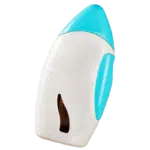
Glucocorticoid nasal spray. Alternative to antihistamines that helps to reduce inflammation.

Fast acting steroid spray. Effective, prescription strength anti-inflammatory.
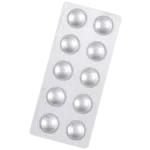
Prescription strength antihistamine. Available as an oral solution as well as tablets.
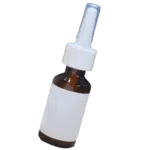
Antihistamine and corticosteroid combination nasal spray. Offers fast relief for hay fever symptoms.
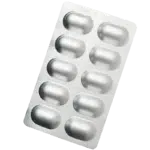
Branded, daily antihistamine tablet for hay fever and hives.
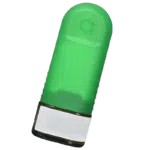
Available as a nasal spray for hay fever relief, and as nasules for treating nasal polyps.

Generic version of Xyzal. Antihistamine that’s less likely to make you drowsy.

Powerful antihistamine available in two different strengths.

Powerful antihistamine. Prescription strength tablet for effective allergy relief.

One a day antihistamine tablet. Fast relief from a range of allergies.

Generic corticosteroid spray that reduces inflammation.

Non-drowsy antihistamine that gets to work in your body quickly.
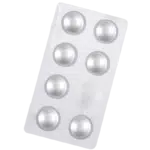
Fast acting, effective antihistamine tablet that doesn't need a prescription.

Registered with GMC (No. 4624794)
Meet Daniel
Registered with GPhC (No. 2202465)
Meet Sanjeda
Registered with GPhC (No. 2070724)
Meet Craig
Always read the leaflet that comes with your medication and tell us about any side effects you get.
We know health, but you know you.
Our experts tell you what’s safe, but you decide what’s best.
Answer a few questions and tell us about yourself. Get tailored advice from our clinicians so you can choose better.
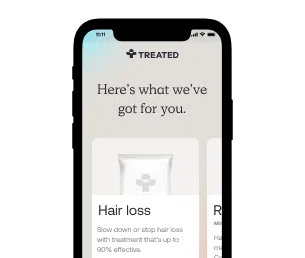
Choose your treatment and how often you have it delivered.
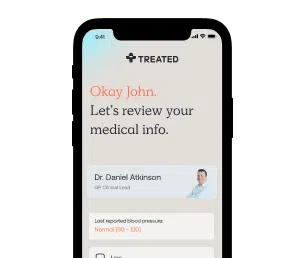
We know things change. It’s the nature of life. We’ll check in regularly to make sure your treatment is still right for you.
Pause. Change. Skip. Start again. Any time you like.
Here are some other things we can help with.
Choose from our range of tablets and solutions. Get ongoing care and support from our experts.
Stop smoking treatments that can help you kick the habit forever, and reduce your risk of disease.
Tablets or injections. Tailored weight loss treatments combined with ongoing support from our experts.
We're making healthcare more about you. Sign up to our newsletter for personalised health articles that make a difference.
Disclaimer: The information provided on this page is not a substitute for professional medical advice, diagnosis, or treatment. If you have any questions or concerns about your health, please talk to a doctor.
We couldn't find what you're looking for.
Here's everything we treat. Or, if you're looking for something we don't have yet, you can suggest something.
If there’s a particular treatment or condition you’re looking for, tell us and we’ll look into it for you.
Submit your question here, or tell us if you’ve found an issue on our site.
We’ll get back to you very soon. We aim to respond to all queries in one working day.
You’re signed up to our newsletter. Keep an eye on your inbox for our latest update.
By clicking 'Subscribe now' you're agreeing to our Privacy Policy.
We’ve sent you an email asking you to confirm your email address.